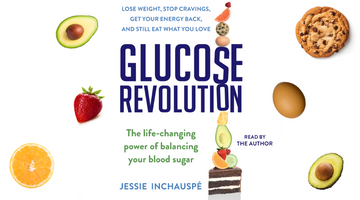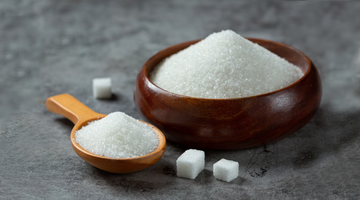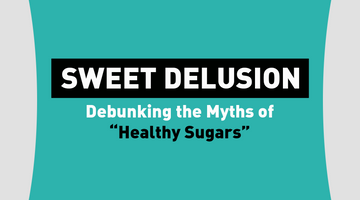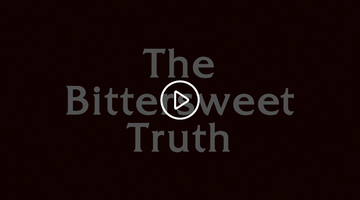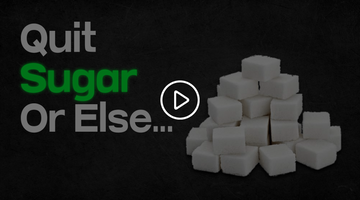Key takeaways:
What Glucose is: Jessie goes beyond simply explaining what glucose is. She delves into its metabolic pathways, how it interacts with hormones like insulin, and how different types of carbohydrates impact blood sugar levels.
Glucose spikes: They happen as a sudden surge in blood sugar levels following the consumption of certain foods, mainly refined carbohydrates and sugars. These spikes are detrimental to our health in several ways.
Not all carbs are created equal: Whole grains, vegetables, and legumes release glucose slowly, preventing dramatic spikes. However, refined carbs and sugars trigger rapid surges and the associated harm.
Consume any type of sugar, they are all the same: All sugars are the same. By the time they reach your intestine, they are all just glucose & fructose. Our body doesn’t process sugar differently whether it comes from sugarcane, date, or coconut.
Is natural sugar better: the belief that honey or sugar from date is natural is a myth. All sugar is natural because it always comes from plants.
Is honey healthier than sugar: Honey is also made of glucose & fructose like any other sugar. The small amount of antioxidants present in honey doesn’t outweigh the large amounts of glucose & fructose they contain. An interesting fact: You can find all the antioxidants present in a teaspoon of honey in just half a blueberry.
Best sweeteners: Stevia & monk fruit are one of the best sweeteners amongst the list of a few more. They do not cause any side effects on glucose & insulin levels.
Short-term effects of glucose spikes:
Energy crashes and fatigue: The insulin surge to bring down the spike depletes blood sugar rapidly, leaving you feeling drained and craving more sugar.Increased cravings and overeating: Spikes stimulate reward centers in the brain, triggering cravings for more sugar and unhealthy choices.
Brain fog and cognitive decline: Glucose is crucial for brain function, and fluctuating levels can impair focus, memory, and mood.
Sleep disturbances: Spikes interfere with sleep hormones, leading to poor sleep quality and further fatigue.
Weakened immune system: High blood sugar makes it harder for white blood cells to fight off infections.
Long-term effects of glucose spikes:
Chronic diseases: Spikes contribute to insulin resistance, type 2 diabetes, heart disease, fatty liver disease, and metabolic syndrome.Accelerated aging: Cellular damage from oxidative stress caused by spikes accelerates aging and increases the risk of age-related diseases.
Inflammation: High blood sugar triggers chronic low-grade inflammation, harming various organs and tissues.
Skin problems: Acne, eczema, and psoriasis are linked to chronic inflammation and blood sugar dysregulation.
Reproductive issues: PCOS and infertility can be influenced by hormonal imbalances caused by insulin resistance.
Inchauspé cites scientific research and evidence to support her claims, making the book informative and credible. She has quoted testimonials from members who have shed weight, curbed their cravings, improved their energy, cleared their skin, rid themselves of PCOS symptoms, reversed type 2 diabetes, done away with guilt, and gained immense self-confidence based on what sugar does to our body!

